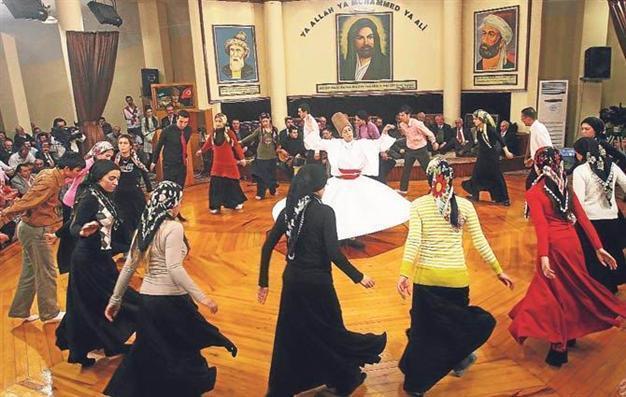England accepts Alevi Federation as charity to promote religious aims
ISTANBUL

The Charity Commission for England and Wales has accepted the British Alevi Foundation (BAF), an umbrella body of 12 Alevi centers in the United Kingdom, as a religious charity, giving the community a legal recognition that is denied to it in Turkey.
In a decision conveyed on Oct. 5, the Charity Commission ruled that the BAF and associated Alevi centers can promote the Alevi faith in accordance with the beliefs set out in the publication “Alevism” produced by the BAF.
Announcing the decision in a press conference in London, BAF head İsrafil Erbil said the decision was important for the Alevi community in the U.K. as it extended legal recognition to the group as a religion.
“The legal recognition of [Alevism] as a religion and faith, and our cemevis [Alevi places of worship] being recognized as a house of worship … gives our children the comfort in defining our belonging and identity,” said Erbil.
Erbil said the state’s recognition would help future Alevi generations who would grow up and live in the U.K. to make clearer definitions of themselves.
Defining one of the four characteristics of a religion as “a spiritual or non-secular belief system, held by a group of adherents, which claims to explain mankind’s place in the universe and relationship with the infinite,” the Charity Commission stated that the summary of the Alevi beliefs met these requirements by defining God as “Hak” (meaning the truth) and that they do not consider God as fixed into a place of worship, iconography or written books but that he is placeless, with the human heart being his only domicile.
The commission defined the second characteristic as “a spiritual or non-secular belief system which teaches its adherents how they are to live their lives in conformity with the spiritual understanding associated with the belief system,” and stated that Alevism had a manners ritual, which is a mechanism to evaluate each member of the community to determine whether they observe the principles and codes or not.
“The community collectively judges persons who are believed to violate any moral principles and impose sanctions such as organizing a communal meal or paying for a community project,” said the Charity Foundation.
The performance of religious services or worship and the advancement of the religion were also listed as the other two characteristics for Alevism to be recognized as a religion.
The status of Alevism is problematic in Turkey as the state does not officially recognize it as a separate religion and does not pay for the expenses of cemevis or permit Alevi children to opt out of mandatory religion classes at school. Instead, the state declares Alevis as Muslims, arguing that the only place of worship for Muslims is the mosque and that all Muslims must attend state religious classes. Only recognized minorities in Turkey – Jews, Greek Orthodox and Armenians – are granted an exemption from the mandatory faith classes.
The European Court of Human Rights have in separate cases ruled that Turkey’s public policies regarding cemevis discriminate against the Alevi community and that the Turkish education system was “still inadequately equipped to ensure respect for parents’ convictions” and violated the “right to education.”
 The Charity Commission for England and Wales has accepted the British Alevi Foundation (BAF), an umbrella body of 12 Alevi centers in the United Kingdom, as a religious charity, giving the community a legal recognition that is denied to it in Turkey.
The Charity Commission for England and Wales has accepted the British Alevi Foundation (BAF), an umbrella body of 12 Alevi centers in the United Kingdom, as a religious charity, giving the community a legal recognition that is denied to it in Turkey.